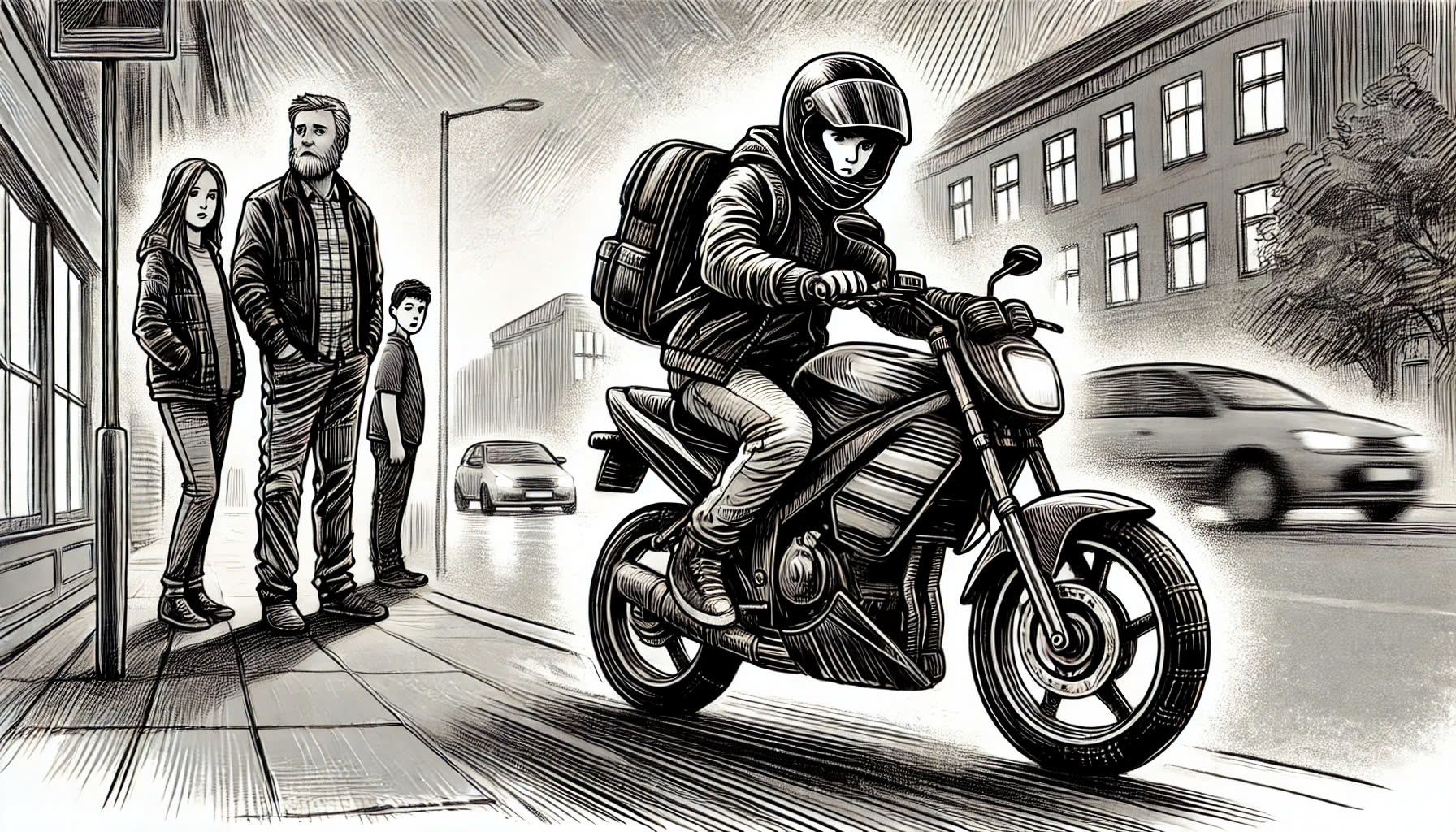Underage motorcyclists: Crime parents can no longer ignore
Welcome to Words on the Street, where we dive into everyday dilemmas. In Vietnam, a mother was recently sentenced to six months in prison for allowing her juvenile child to drive and cause a serious accident. This ruling sets a tough but necessary precedent: parents can no longer ignore their legal responsibilities.
THE HANOI TIMES — A six-month jail sentence for a mother in the northern province of Hai Duong has sent shockwaves through Vietnamese society. Is it her crime?
While some see the verdict as overly punitive, others believe it a long overdue wake-up call. One thing is for sure, this case is a watershed. For far too long, underage riding has been treated as a minor offense. Now parents are facing a real deterrent, and rightly so. This is not just about convenience or tradition, but about responsibility, safety, and the rule of law.

The facts of the case are both straightforward and chilling. In June 2024, Le Thi L. purchased an electric motorbike for her 15-year-old son.
In August, the same vehicle was involved in a collision that left a father and his 9-year-old son with devastating injuries, a combined body damage of 127%. Because the driver is a minor, the court found the person who made the crime possible guilty: the mother. Under Article 264 of the Penal Code, which punishes anyone who allows an unqualified person to drive a vehicle, she was sentenced to six months in prison.
It is a ruling that makes one thing clear: parents can no longer hide behind the claim that they meant no harm. When you knowingly break the law and cause harm to others, good intentions are no longer a valid excuse.
This case is groundbreaking not only because of the severity of the sentence, but also because it marks a significant shift from treating the offense as an administrative infraction to prosecuting it as a criminal charge.
Until now, underage driving cases have usually resulted in fines, often depending on the extent of the damage and the mutual agreement of the parties involved. By imposing a jail sentence in this case, the court has set a new legal precedent, meaning that future cases involving parents who allow underage children to drive may now face similar or even harsher punishments.
Nearly 900 children were killed and nearly 1,200 injured in accidents involving juvenile drivers, accounting for 8% of all accidents in Vietnam in 2023, according to a 2023 study by the National Traffic Safety Committee.
Child traffic accidents continue to increase in complexity and show no signs of abating in the first quarter of 2024. Despite these troubling numbers, underage driving remains common, largely due to parents' continued perception that it is necessary or harmless.
For years, underage motorbike riding has been an open secret. It happens on city streets and in rural towns. We see teenagers, many too young to hold a legal license, weaving through traffic on motorbikes far more powerful than they are prepared to handle.
Underage riders are not physically or psychologically equipped to safely operate a motorcycle. Their combination of inexperience and immaturity could hurt themselves and people around them.
Although the law prohibits anyone under 18 from riding motorcycles over 50cc, it is routinely ignored. Some parents shrug it off, arguing that it is necessary for their children to be able to ride. Others justify their actions by pointing out that "everyone else is doing it". But as this recent case shows, those excuses no longer hold up in court.
When an illegal ride results in life-changing injuries, someone needs to be held accountable, and that someone is the adult who made the reckless decision to hand over the keys.
Some have argued that six months in jail is too harsh. After all, isn't a mother just trying to make life easier for her child? Isn't public transportation in Vietnam inconvenient? Don't other parents do the same thing every day without consequence? But this kind of thinking is part of the problem. It reduces the gravity of a violation of the law, one with real victims, to a matter of convenience.
To be clear, giving a motorcycle to an unqualified, underage rider is not an innocent mistake. It is a conscious decision to break the law. And when that decision results in the serious injury or death of another person, the ramifications should be severe. A fine, a mere slap on the wrist, would not have sent the same message. A jail sentence, however, is harder to ignore.
A criminal record is a permanent mark of shame that affects not only the individual but the entire family. For the mother in this case, her time in prison is not just a legal punishment, but a permanent scar on her family's reputation.
The real question is not whether the punishment is too severe. The question is why it took so long for the legal system to act. Underage riding is widespread, yet laws are rarely involved until tragedy occurs. This case changes the story. It tells every parent in Vietnam that the days of looking the other way are over.
Of course, some will still argue that parents should not be punished so harshly for their children's mistakes. Why should the mother be jailed if the teenager was the one driving? However, parents are not just passive bystanders, they are responsible for their child’s actions. This case serves as a reminder that parental carelessness can ruin lives and is not a personal matter.
This ruling should not be seen as an isolated incident, but rather as the beginning of a necessary shift in how we approach road safety. Vietnam has long struggled with traffic accidents, and underage driving is just one part of a much larger problem.











